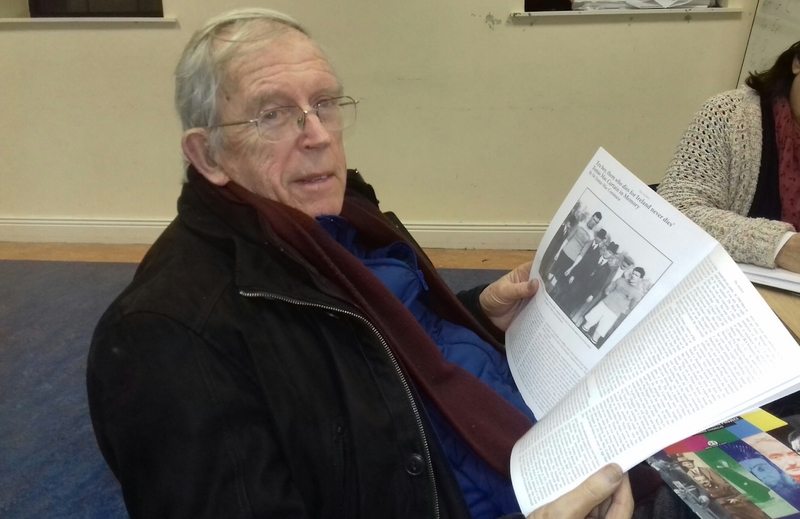Pat Gunn: The Emergency, Cork Harbour, John F. Kennedy
Title
Subject
Description
This is the second of two interviews with Pat for The Cork Shakespearean Company (The Loft) collection. The first is CFP_SR00598_Gunn_2017
Date
Identifier
Coverage
Relation
Source
Rights
Language
Type
Format
Interviewee
Interviewer
Duration
Location
Original Format
Bit Rate/Frequency
Transcription
DM: He wasn’t very impressed with Hollywood or with cinema was he?
PG: Not particularly. I don’t know if he ever went out to see a film. I presume he did but that didn’t sort of light his fire at all really he had no particular, any interest in film, no particular interest in the theatre as such. Always remember that Fr O Flynn was exercising his ministry as a priest in the Loft and he was very subtly getting across the story of the gospels through the teaching of Christ through the plays of Shakespeare you know? That was his main thrust really so, yeah he certainly was in the 1930s well before I arrived they brought out a pamphlet for one of their shows about the evils of Jazz. They were very, very much opposed to jazz. He was anyway. I think he had convinced a lot of the guys up there at the time, and girls, that jazz, they kind of in a way that they were a little bit superior to that you know? That was, they regarded jazz as a little bit low class and I used to get that from Gus Healy you know who was very deeply involved from the inception of the Loft in 1924 up until he died in 1986 as Chairman of the Loft itself. He’d been Chairman actually since the time Fr O Flynn died in 1962 until he died himself in 86 so in all those years like he guided the Loft on a very steady course of development you know? And like the Loft in those days became a very popular place for aspiring actors, certainly during Fr O Flynn’s time of course and after the War, you know? A lot of young guys and girls that were interested in getting involved in theatre and it was kind of a thing to do at the time if you really wanted to put the stamp on your acting career it was nice to be able to say that you had spent some time in the Loft you know? And even for those who subsequently went on to become professional actors they would often refer to that like, that was where they learned their craft. Of Course, the whole thrust of Fr O Flynn and the Loft was to as he used to say himself constantly to educate the heart and the emotions that went with it. So he had no great interest in, you know, in new attitudes or anything like that that didn’t take that of acting, that didn’t take that into account. No interest in the technicalities of acting you know? That didn’t interest him. But what interested him was getting inside the emotional elements of the characters you played. And he was right because unless you do that your characters are going to come across rather stilted and wooden you know? But by really adopting the characters, kind of a method system really in a way with, I’m sure himself and Stanislavski would have had a great deal in common in that sense you know? But he wasn’t you know, open to any immorality or anything like that although open-minded in his own way. That so often say to them, the older guys when they were coming back on busses from performing and things like that you know, he used to say to them down the back of the bus, he’d be up in the front of the bus and he’d say “no keyhole romancing down there” you know? So like if you were, he didn’t mind you, you know having a bit of a romantic session with your girlfriend but provided you weren’t hiding it so in that sense he was a bit ahead of his time.

